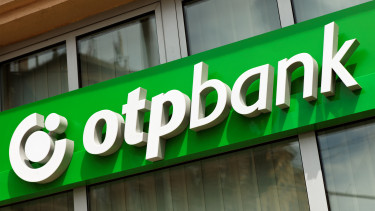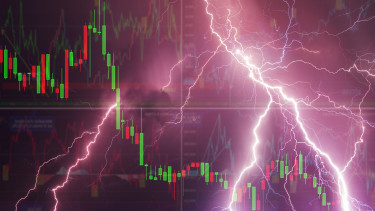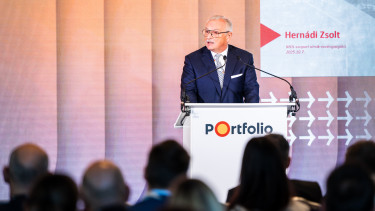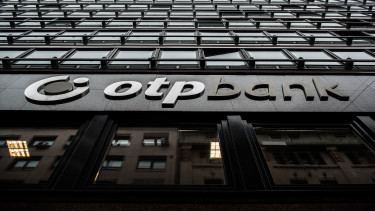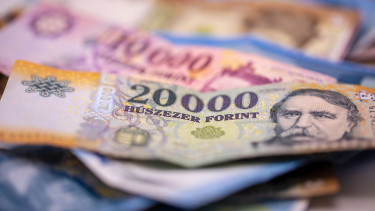Global fund manager sets up shop in Hungary, this is how they see the future of investing

How could you describe the ETF industry’s place and role alongside the traditional mutual funds? What are the main trends looking at the global ETF numbers?
Markus Melchart: The global ETF market had an impressive growth in the last 10 years with the US region being the market leader but the ETF business in EMEA (Europe, Middle East, Africa) also growing significantly. This development is primarily linked to the big market players like pension funds or insurance companies to cover their exposure in – mostly very efficient – core markets rather via ETFs than via mutual funds.
In Europe the growth of the ETF business started on the equity side especially in the space of the major market indices like S&P 500 and continued then also in the fixed income area. Driven by positive momentum of the asset class and its diversification benefit also commodity-related products moved into the focus of investors recently.
What can be observed in the last years is that due to the low cost, ETFs are also gaining traction among retail investors, especially in the group of the Millennials, where also thematic ETFs have played an important role as they make promising investment themes easily accessible.
In our view, this development is very likely to continue with ETFs gaining market share from actively managed funds predominantly in the core beta (1) space but also in several areas in the thematic space.
Which are the most popular ETF types, are there any differences between the regions?
M.M.: After the Global Financial Crisis traditionally physically replicating ETFs (2) clearly dominated client portfolios. What can be observed however is that due to massive improvements in the risk management of swap-based ETFs (3) in addition to extremely competitive pricing and in some cases also significant tax-advantages over physically replicating ETFs this has been changing for a while already.
There are regional differences which type of ETF is preferred which is usually related to specific regulation and is also sometimes only relating to certain market segments. In our perspective, as we do offer both replication methods in our ETF range, it is up to the client to choose and it is our job to provide the client with all information he needs to make an informed decision.
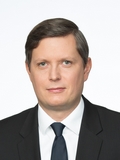


Which are the most exciting investment trends on the market? Is the ETF industry keeping up with investors’ demand?
M.M.: It seems thematic investing has become a major trend that nowadays involves all types of clients and has therefore shown significant growth in the last couple of years. The positive inflows in that segment are due to the fact that a big number of themes, in many cases related to technological innovation like for example the blockchain technology or individual sources of clean energy were identified and made investable via mutual funds and to a very big extent also ETFs.
As a consequence, also the number of thematic ETFs has shown a very strong growth. Another big trend is of course the inclusion of ESG (Environmental, Social and Governance factors) considerations when investing. This led to a broad variety of ESG-oriented solutions addressing different aspects and also different degrees of responsible or sustainable investing, especially in the field of ETFs.
Invesco plans to penetrate the Hungarian market. What are the attractive sides of the Hungarian market for such a big player? What kind of products would you like to offer here?
M.M.:
Hungary is a pretty big and therefore important market with currently only a small number of foreign players being present.
In addition to that the demand for passive investing on a broader scale is right at the beginning. Furthermore, the Hungarian market has – as many other markets – a very strong home bias which opens up the demand for diversification on the asset allocation side. For a global player with a broad and diversified product offering combined with strong research capabilities, like Invesco, this brings a lot of opportunities and a huge growth potential.
Our approach is to very selectively register products, both mutual funds and ETFs, where we feel that we have a competitive advantage and where we see future demand. Beside that we view ourselves as providers of thought leadership with the clear aim to support our clients on the educational side and also help them finding suitable solutions for their individual investment needs.
There are more and more words about the world heading towards a recession. Which regions, investment trends could come out as better investment opportunities in such environment?
M.M.: In general, we would expect that from an economic perspective the US as well as developing and especially Asian countries should benefit from the conflict between Ukraine and Russia and its impact. These regions are either much less dependent on Russian trade and the import of fossil commodities from Russia than Europe (e.g. the US) or take advantage of a favourable pricing for their imports from Russia as they do not support the sanctions against Russia (e.g. India, China). By that these economies are less impacted by this conflict although even their prices are rising dramatically.
Another consequence is that the demand for new energy got an additional boost beside the increasing consideration of ESG to stop global warming as soon as possible by Europe´s need to replace Russian oil and gas. In this environment diversification across asset classes is more important than ever in order to mitigate risk and maximize return opportunities since there is little certainly as to how regional and global economies will fare over the short and medium term.
The other big problem we face now is inflation. Does Invesco have funds offering inflation mitigation?
M.M.: Indeed, investing in an inflationary and no growth or maybe even recessionary environment is a real challenge for investors. What we consider as interesting products in such an environment are our highly successful Invesco Physical Gold ETC as well as the broad-based Invesco Bloomberg Commodity UCITS ETF in the commodity space, for certain equity investors the Invesco Responsible Global Real Assets Fund, a diversified global real assets fund that also applies a dedicated ESG-approach could be a very interesting choice depending on individual circumstances. (Of course, all these products are registered in Hungary and this should not be considered investment advice.)
How do you see the future of asset management industry? Which top 3 future trends would you point out?
M.M.: The overall trend we see is that the investment universe is broadening as the need for diversification among investors increases. In that regard we observe a growth in demand for alternative investments (e.g. Real Estate) and investment products giving access to private markets, which also include products with limited liquidity or even closed-end (4) structures. We also expect that the trend towards the usage of passive investments (5) both on the institutional and the retail side will continue (, especially in well-researched markets as cheap and maybe even tax-advantageous vehicles.
Furthermore we see growing demand and offering in the area of thematic investments and smart beta (6) solutions.) Finally ESG is becoming an increasingly important topic, of course there are regional differences in regard of the strictness that ESG is applied which makes it highly important to be aware of the differences in regard of the various product offerings, definitions and investment targets.
(1) Beta: A measure of how an individual asset moves (on average) when the overall stock market increases or decreases. Thus, beta is a useful measure of the contribution of an individual asset to the risk of the market portfolio when it is added in small quantity.
(2) Physical replication: An investment method whereby the ETF seeks to replicate the performance of an index by buying and holding the underlying securities of the index. This can be through full physical replication, meaning the ETF buys and holds all securities in the index in the same proportion as the index, or through sampling.
(3) A swap is a derivative contract where two parties agree to exchange separate streams of cashflows or returns.
(4) Used to describe an investment fund in which shares in the fund can be bought and sold, but no new shares are made available.
(5) A passive fund is an investment vehicle that is designed to track the performance of a benchmark (see "benchmark" for definition). This differs from an actively managed fund where its manager makes discretionary investment decisions in an attempt to outperform the benchmark.
(6) Smart beta is a generic term for any rules-based strategy that uses characteristics other than just geography and market capitalisation to select and weight the securities of the index. Factor investing (see "Factor Investing" for definition) are examples of smart beta strategies.
SPONSODRED CONTENT
The publication of this article was sponsored by Invesco Ltd.
Cover photo: Getty Images

